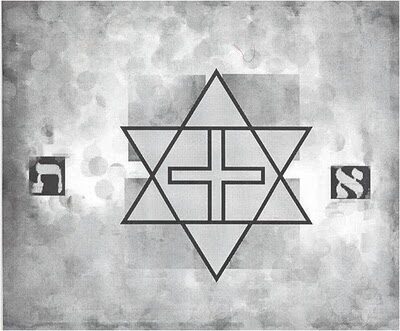Jesus may have been rejected yet, the Talmud makes some very interesting statements that we ought to seriously consider because it is beyond question that something happened that changed the Jewish religion and thus, changed the world of Judaism forever.
What was this occurrence?
This event occurred 40 years before the destruction of the Second Temple which was destroyed in 70 AD; forty years prior is 30 AD. What is it that happened in 30 AD that had such a profound impact on Judaism?
It just so happens that this was when Jesus died. It just so happens that He said that He was dying for sin. It just so happens that this is when the most well known and respected Rabbis of all time said that the sacrificial system was no longer effective. And it just so happens that Jesus said “I came not to destroy the law, but to fulfill” (Matthew 5:17).
What is astonishing is that before the birth of Jesus and before Christianity existed there existed Jewish concepts about when the Messiah would come. So certain were the ancient sages that when the expected time came and went they wept because the Messiah did not come. However, Jesus did come within that time frame. We will see from authoritative Rabbinic writings that the Messiah should have come already and he should have done so right around the time of Jesus.
Targum Onkelos on Genesis 49:10,
“The transmission of dominion shall not cease from the house of Judah, nor the scribe from his children’s children, forever, until the Messiah comes, to whom the Kingdom belongs, and whom nations shall obey.”
Targum Pseudo-Jonathan on Genesis 49:10,
“Kings and rulers shall not cease from the house of Judah, nor scribes who teach the Torah from his seed, until the time when the King Messiah shall come, the youngest of his sons, and because of him nations shall melt away.”
Fragmentary Targum Genesis 49:10-12,
“Kings shall not cease from the house of Judah, nor scribes who teach the Torah from his children’s children, until the time of the coming of King Messiah, to whom belongs the Kingdom, and to whom all dominions of the earth shall become subservient…
How beautiful is he, King Messiah, who is destined to arise from the house of Judah….How beautiful to behold are they, the eyes of the King Messiah…”
Talmud-Sanhedrin 98b on Genesis 49:10,
“What is his [the Messiah’s] name?-The School of R. Shila said: His name is Shiloh, for it is written, until Shiloh come. Others say: His name is Menahem the son of Hezekiah, for it is written, Because Menahem [‘the comforter], that would relieve my soul, is far. [Lam. 1:16]
The Rabbis said: His name is ‘the leper scholar,’ as it is written, Surely he hath borne our griefs, and carried our sorrows: yet we did esteem him a leper, smitten of God and afflicted [Isa. 53:4].”
The above quotes are explained and tied in together in this one from Talmud-Sanhedrin 97b,
“Rab said: All the predestined dates [for redemption] have passed, and the mater [now] depends only on repentance and good deeds.”
A discussion ensues as to whether or not repentance is really necessary for redemption. Employing Daniel 12:7 as the proof text a conclusion is reached: “Messiah’s coming is dependent only upon the utter prostration of Israel, not his repentance.”1
Midrash Rabbah, Genesis XCVIII. 8,
“UNTIL SHILOH COMETH: this alludes to the royal Messiah. AND UNTO HIM SHALL THE OBEDIENCE (YIKHATH) OF THE PEOPLE BE: he [the Messiah] will come and set on edge (makheth) the teeth of the nations of the world.”
What we see here is a sort of desperation in realizing that the Messiah should have already come. This desperation makes the ancient Rabbis to go as far as proclaiming that “good deeds” are a means of bringing about redemption, something which goes against the Old Testament.For example, consider the following text:
“The righteousness of the righteous man will not save him when he disobeys, and the wickedness of the wicked man will not cause him to fall when he turns from it_
If I tell the righteous man that he will surely live, but then he trusts in his righteousness and does evil, none of the righteous things he has done will be remembered_And if I say to the wicked man, ‘You will surely die,’ but he then turns away from his sin and does what is just and right_he will surely live; he will not die. None of the sins he has committed will be remembered against him” (Ezekiel 33:12-15).
One wonders how many Jews know that they now believe in doing good deeds for forgiveness and in order to “bring the Messiah” because the ancient sages knew that the Messiah should have come already but did not.
Tzvi M. Rabinowicz points out that Rabbi Moses ben Maimon (aka Maimonides or the Rambam) claimed that “it is a fundamental dogma to believe in the coming of the Messiah, even if he delays. But no one should attempt to guess or fix the time.”2

